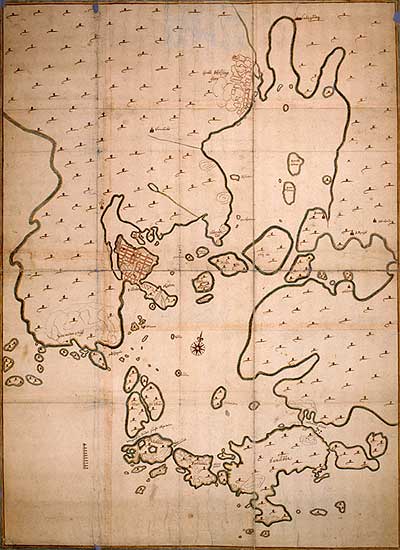by John W. Sexton
Herttoniemi:
Leave the train momentarily.
From the red dispensing machine select an item at random.
Give this to the beggar wandering deluded by the yellow line.
In return the beggar will kiss you on the right cheek.
The kiss will remain on your cheek for most of the journey.
Do not wipe it away. It will be needed later.
Return to the train.
Siilitie:
A crow will swoop into the train
and deposit a gobbet of snow into your left ear.
Do not remove the snow from your ear.
The crow will leave the carriage almost immediately.
Listen to the snow. Remember all that it tells you
Itäkeskus:
Even if you are already on the Vuosaari train,
exit the carriage and wait for the next train to Vuosaari.
If a woman with bronze hair asks you for the time
tell her that you will give her a year of your life.
If you are still alive when she departs along the platform
be grateful that you had more than a year’s life to live.
If from this point you are no longer on the platform
then you are most likely dead.
If you are still alive then enter the next train marked for Vuosaari.
Myllypuro:
On the platform the station master
will be holding a parcel of sunlight.
Those who look into it will become blind.
Those who ignore it are already blind.
With your eyes closed accept the parcel
and return to your train.
Puotila:
The round lights on the ceiling of the platform
will purr like cats.
The parcel of sunlight will become heavy.
All the mice of Puotila will have gone in there
to hide in the light.
No matter how heavy it is
do not remove the parcel from your lap.
Kontula:
The snow in your ear will describe a person
who has just entered the carriage.
The person the snow has described
will sit in the empty seat to your right.
Unbidden that person will lean over suddenly
and kiss you on the right cheek.
They are taking the kiss that was left there.
Say nothing. Do nothing.
Do not look at the person who has kissed you.
If you are a man that person will be a man.
If you are a woman that person will be a woman.
Rastila:
The person who kissed you at Kontula will leave the train.
As this person leaves their seat you will notice
that they have become a young child.
Do not be jealous that they are young again.
Do not question how this could be.
The last of the snow is now almost completely melted in your ear.
Remember the very last word it speaks.
Mellunmäki:
Depart from the carriage even if this was not your intended destination.
Leave the parcel on your seat.
Do not worry that the train might be overcome with sunlight.
Do not worry that the train might be overcome with mice.
The destiny of the train is not your concern.
Once the train departs the platform
then you must speak out loud the very last word
you heard from the snow.
What happens next is unfathomable.
But you’ll know it when it happens.
John W. Sexton lives in the Republic of Ireland and is the author of five poetry collections, the most recent being The Offspring of the Moon, which was published by Salmon Poetry in 2013. He created and wrote the science-fiction comedy-drama, The Ivory Tower, for RTÉ radio, which ran to over one hundred half-hour episodes from 1999 to 2002. Two novels based on the characters from this series have been published by the O’Brien Press: The Johnny Coffin Diaries and Johnny Coffin School-Dazed, which have been translated into both Italian and Serbian. Under the ironic pseudonym of Sex W. Johnston he has recorded an album with legendary Stranglers frontman, Hugh Cornwell, entitled Sons Of Shiva, which has been released on Track Records. He is a past nominee for The Hennessy Literary Award and his poem "The Green Owl" won the Listowel Poetry Prize 2007. In 2007 he was awarded a Patrick and Katherine Kavanagh Fellowship in Poetry.
What do you think is the attraction of the fantasy genre?
For me, as both a reader and a writer, the attraction of the Fantastic in literature has always been its ability for resonance. The fairy tales of Hans Christian Andersen were the first to expose me to this resonance as a young boy. It was as if the stories themselves held a secret inside of them, something my reading mind couldn’t quite put its finger on. Tales like The Tinder Box, The Flying Trunk, The Steadfast Tin Soldier, held in their melancholy and disturbing undercurrents an irresistible tow that kept my imagination drowned in them long after I’d closed their final pages. It is that sense of after-drowning that attracts me to the Fantastic; it is that aspiration for resonance that keeps me writing it.

No comments:
Post a Comment